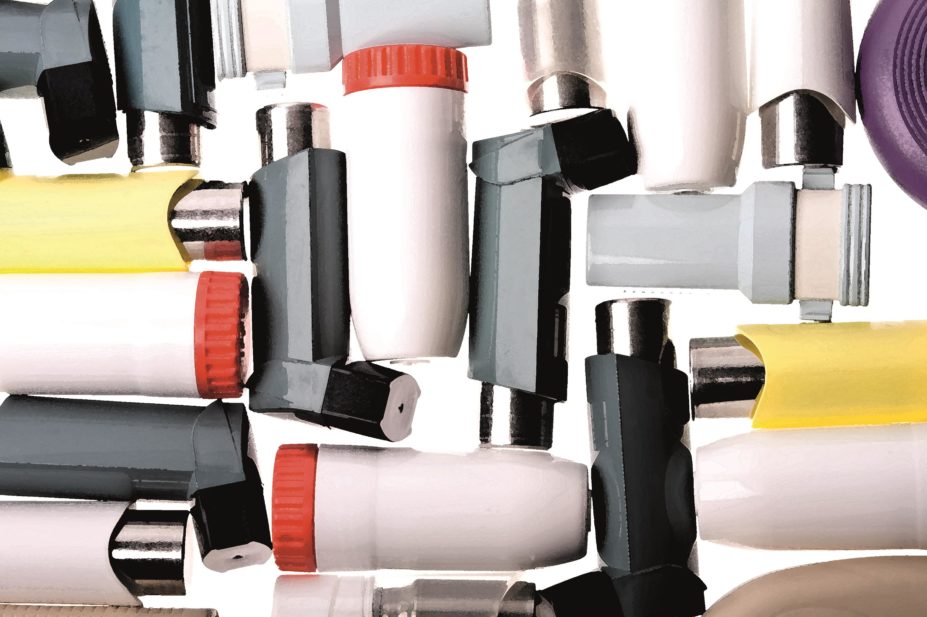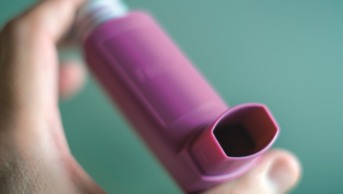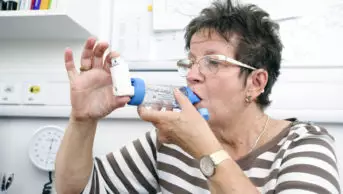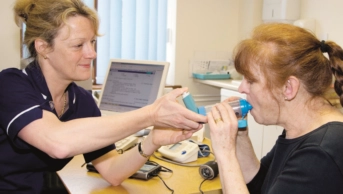
JL / Shutterstock.com
There has been a cultural shift in recent years leading many of us to take a step back and reflect on the environmental impact of our seemingly insignificant day-to-day activities, and make adjustments where we can.
Whether it is replacing our usual takeaway coffee cup with a reusable one or limiting our heating to 19°C, small daily actions can amount to great change. And this applies equally to the NHS, which, according to the UK government’s Department for Environment, Food and Rural Affairs, produces approximately 600,000 tonnes of clinical, pharmaceutical, infectious and domestic waste each year.
One area we should be turning our attention to, as highlighted in the ‘NHS Long Term Plan’, published in January 2019, is the 73 million respiratory inhalers prescribed every year in the UK. The carbon emissions from these inhalers are potentially equivalent to that produced by over 300,000 cars.
If every inhaler user in the UK returned all their inhalers for one year, this could save 512,330 tonnes of carbon dioxide
This is a staggering figure, but the document highlights the role of pharmacists in encouraging patients to reduce the use of traditional metered dose inhalers (MDIs) and help them switch to lower carbon inhalers, such as dry powder inhalers (DPIs), where clinically appropriate. The plan says this shift could contribute as much as 4% of the NHS commitment to reducing carbon emissions overall by 57% by 2030. A working group is looking at how this can be achieved, although concrete plans have yet to be published.
A
new patient decision aid from the National Institute for Health and Care Excellence (NICE) reinforces this recommendation, showing that MDIs have an estimated carbon footprint of 500g carbon dioxide equivalent per dose, compared with 20g for DPIs. Or, put another way, just five doses from a MDI is equivalent to driving nine miles in an average car. MDIs contain hydrofluorocarbons — powerful greenhouse gases — to help propel the dose into the patient’s respiratory system, but many people can get the same benefit from DPIs.
Recycling is one of the simplest ways we make a difference. Patients can return all used inhalers to any community pharmacy to be disposed of in an environmentally safe way, preventing the release of greenhouse gases that occurs when inhalers are sent to landfill. If every inhaler user in the UK returned all their inhalers for one year, this could save 512,330 tonnes of carbon dioxide — the same as a Volkswagen Golf being driven around the world 88,606 times.
However, education of patients is required: a survey carried out by GSK found that 33% of people said that they used their kerbside recycling service to dispose of their inhalers. But, councils generally cannot routinely recycle the plastics and gases contained in inhalers, so they will often go to landfill or incineration. The company has tackled this by signing up 5,000 pharmacies across the UK to its ‘Complete the Cycle’ recycling scheme since it was launched in 2011. To date, 1.6 million inhalers have been recycled and recovered through the scheme — the equivalent to taking more than 5,000 cars off UK roads, GSK estimates.
This is certainly progress, but much more needs to be done. As one senior pharmacist has suggested, perhaps it is time for a nationally commissioned scheme for recycling inhalers at community pharmacies and for pharmacy teams to give advice to patients about the environmental impact of the inhalers they are using. This would provide a consistent message to patients and enable all community pharmacies to take part in what is becoming a real movement in society to reduce the impact we all have on the environment.


